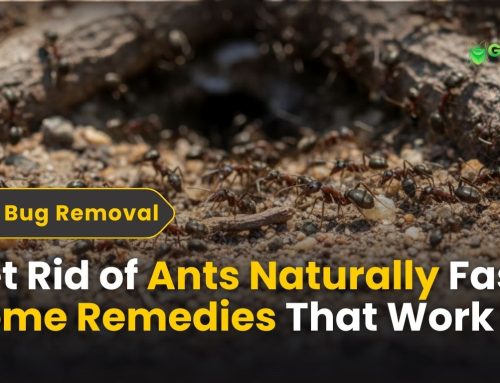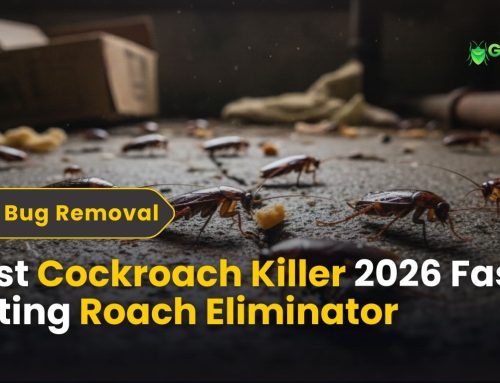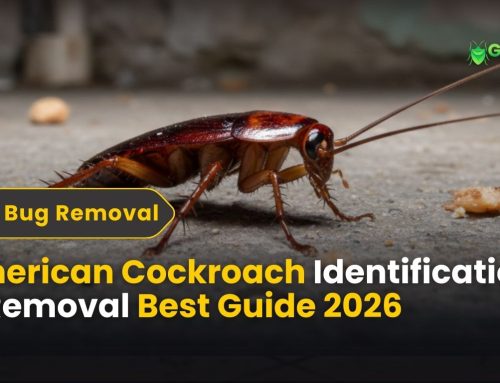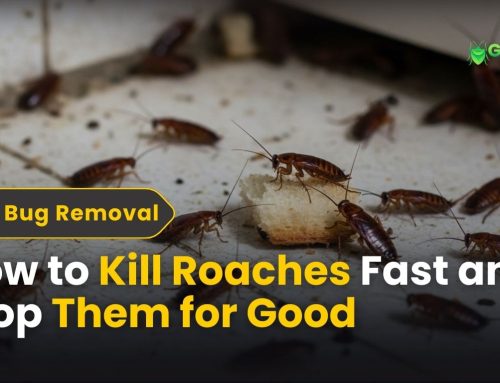5 DIY Ant Control Methods: Effective Solutions to Keep Your Home Ant-Free
Ants are one of the most common household pests, and once they invade, getting rid of them can be difficult. They are constantly searching for food, water, and shelter, making kitchens, pantries, and other areas with crumbs and moisture prime targets. While professional pest control is an option, many effective do-it-yourself (DIY) methods can help manage and prevent ant infestations.
Understanding why ants enter your home is key to eliminating them. These tiny pests leave pheromone trails for other ants to follow, leading to a full-blown infestation if not addressed. The best approach to DIY ant control involves a combination of cleanliness, natural repellents, and targeted treatments. Simple household ingredients like vinegar, lemon juice, and baking soda can repel ants, while borax-based baits help eliminate entire colonies. Commercial ant sprays and bait stations can also be effective for persistent problems.
Sealing entry points, maintaining a clean home, and using preventive measures can significantly reduce the chances of an infestation. However, if ants keep returning despite your efforts, it may be time to call a professional exterminator. This guide will explore various DIY ant control techniques, natural and chemical solutions, and expert recommendations to help keep your home ant-free. Whether you’re dealing with a minor issue or a major infestation, these methods will help you regain control
Why Do Ants Invade In Your Homes?
Ants invade homes in search of food, water, and shelter, making kitchens and pantries their primary targets. They are especially drawn to sugary, greasy, and leftover food crumbs. Even the smallest spills can attract a trail of ants. Common entry points include cracks in walls, windows, doors, and gaps in flooring.
Once inside, ants leave pheromone trails to guide others, quickly leading to an infestation. To prevent this, it’s essential to keep surfaces clean, store food in sealed containers, and seal potential entry points. Addressing these factors can significantly reduce the chances of an ant problem in your home.
Common Types of Household Ants
- Odorous House Ants: Attracted to sweets and found in kitchens.
- Carpenter Ants: Nest in wood and can cause structural damage.
- Pavement Ants: Found in cracks of sidewalks and foundations.
- Fire Ants: Aggressive ants that sting and often build mounds in yards.
05 DIY Methods for Ant Control
1. Identifying and Eliminating Entry Points
The first step in controlling ants is preventing their entry.
- Inspect windows, doors, and walls for cracks or gaps.
- Seal gaps with caulk or weather stripping.
- Fix leaky pipes and eliminate standing water sources.
2. Keeping Your Home Clean
Ants are attracted to food and water sources, so maintaining cleanliness is crucial.
- Wipe down countertops, floors, and tables regularly.
- Store food in airtight containers.
- Take out the trash frequently and keep garbage bins sealed.
- Avoid leaving pet food out overnight.
3. Natural Remedies to Repel Ants
Vinegar Solution
- Mix equal parts white vinegar and water.
- Spray along ant trails, entry points, and surfaces.
- Vinegar disrupts the ants’ scent trails, making it difficult for them to navigate.
Lemon Juice
- Squeeze fresh lemon juice at entry points and along ant trails.
- The acidic nature disrupts their communication and deters them from entering.
Cinnamon and Cloves
- Sprinkle ground cinnamon or place cinnamon sticks near entry points.
- The strong scent acts as a natural deterrent.
Diatomaceous Earth (DE)
- Sprinkle food-grade diatomaceous earth in areas where ants travel.
- This natural powder dehydrates and kills ants upon contact.
Essential Oils (Peppermint & Tea Tree Oil)
- Mix a few drops of essential oil with water and spray in affected areas.
- These oils have strong scents that repel ants.
Baking Soda and Sugar Bait
- Mix equal parts baking soda and sugar.
- Place small amounts near ant trails.
- Sugar attracts ants, while baking soda disrupts their digestive system.
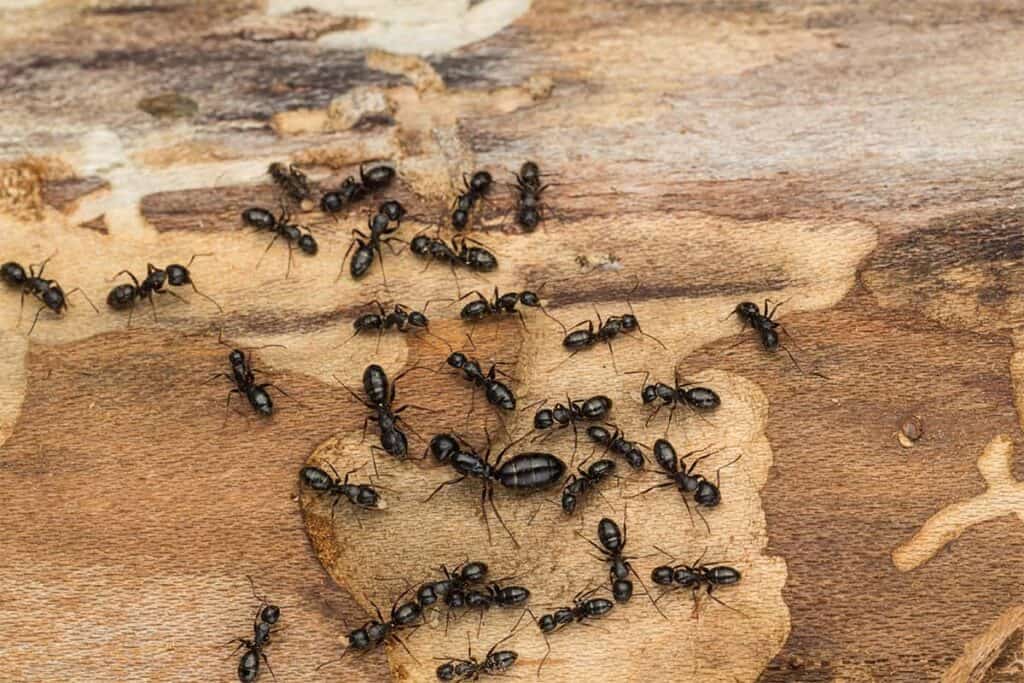
4. Chemical Solutions for DIY Ant Control
Ant Baits
- Use store-bought ant bait stations containing borax or other insecticides.
- Worker ants carry the poison back to the colony, effectively eliminating it.
Ant Sprays
- Use commercial ant sprays with insecticides like pyrethroids for quick knockdown.
- Avoid spraying near food preparation areas.
Granular Ant Bait for Outdoor Control
- Sprinkle granular bait near anthills and around the home’s perimeter.
- This method helps target the entire colony.
Homemade Borax Bait
- Mix 1 tablespoon of borax with 1 cup of sugar and add enough water to make a paste.
- Place small amounts near ant trails.
- Borax disrupts the ants’ digestive system, killing them slowly.
5. Long-Term Prevention Strategies
- Keep shrubs and trees trimmed away from the house.
- Avoid stacking firewood or debris near the home.
- Regularly inspect the foundation and repair cracks.
- Use ant deterrent powders or sprays along the home’s perimeter.
Professional Advice: When to Call an Exterminator
If ants persist despite your DIY efforts, it may be time to seek professional help. While homemade solutions and store-bought treatments can be effective for minor infestations, larger or recurring problems often require expert intervention. Professional exterminators have the knowledge, experience, and tools to eliminate ants at the source and prevent future invasions.
Signs You Need Professional Help
Not all ant infestations can be handled with DIY methods. Here are some situations where calling a professional is the best option:
- Large or Persistent Infestations: If ants keep returning despite repeated treatments, it may indicate a hidden colony that needs to be professionally addressed.
- Carpenter Ants Causing Structural Damage: Carpenter ants tunnel through wood, potentially weakening the structure of your home. Ignoring them can lead to costly repairs.
- Fire Ants Posing a Risk to Pets and Children: Fire ants are aggressive and can deliver painful stings, making them dangerous, especially in outdoor spaces where children or pets play.
What Professionals Do
Hiring an exterminator ensures that your ant problem is addressed thoroughly. Here’s what they offer:
- Identify the Species and Locate Nests: Professionals determine the exact type of ant infestation and find hidden colonies.
- Use Commercial-Grade Baits and Treatments: They apply more effective solutions that are not available to the public.
- Provide Long-Term Prevention Strategies: Experts offer guidance on sealing entry points and maintaining an ant-free home.
FAQs About DIY Ant Control
1. What is the best homemade ant killer?
A mixture of borax and sugar is highly effective, as ants carry it back to their colony, eliminating it from within.
2. How long does it take to get rid of ants using DIY methods?
It varies depending on the method used. Baits can take 1-2 weeks, while repellents work immediately but require reapplication.
3. Does killing ants attract more ants?
Yes, squashed ants release pheromones that signal danger, attracting more ants to investigate. It’s better to use bait traps.
4. Are natural remedies as effective as chemical solutions?
Natural remedies can work well for minor infestations, but severe infestations often require chemical treatments or professional extermination.
5. How can I prevent ants from returning?
Regular cleaning, sealing entry points, and using preventive deterrents like vinegar and diatomaceous earth can help keep ants away.
Final Thoughts
DIY ant control methods can be highly effective when implemented correctly. Ants are persistent pests, but with the right strategies, you can eliminate them and prevent future infestations. The best approach involves a combination of natural repellents, homemade baits, and chemical solutions to target both individual ants and their colonies.
Natural remedies such as vinegar, lemon juice, cinnamon, and essential oils disrupt ant trails and deter them from entering your home. Homemade baits using borax and sugar attract ants, allowing the poison to be carried back to the colony for widespread elimination. Diatomaceous earth is another effective natural option that dehydrates and kills ants on contact.
For severe infestations, commercial ant baits and sprays can provide more immediate relief. Sealing entry points, keeping food stored in airtight containers, and maintaining a clean environment will also help prevent ants from returning. Regularly inspecting your home for cracks and leaks can further reduce the risk of infestations.
However, if ants keep returning despite your best efforts, seeking professional extermination services is the best solution. Pest control experts can identify the root cause and apply more advanced treatments for long-term results. Stay proactive, follow these preventive measures, and use the right combination of solutions to keep your home ant-free.

